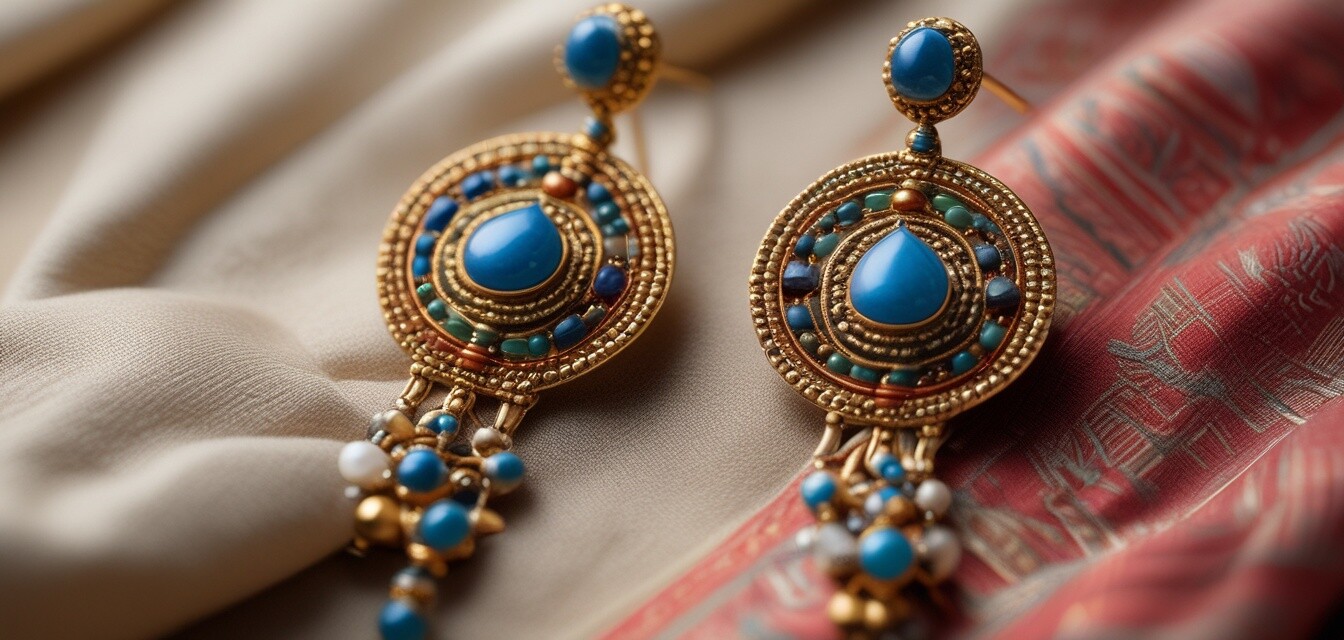
Selecting Jewelry for Cultural Celebrations
Key Takeaways
- Choose jewelry that reflects the values and traditions of the culture you are celebrating.
- Ensure the jewelry is ethically sourced to support fair trade practices.
- Consider the significance of colors and materials used in the jewelry.
- Pay attention to craftsmanship and the history behind the jewelry styles.
- Explore a variety of styles that align with both cultural significance and personal aesthetics.
When celebrating cultural events, the jewelry we choose can serve as a powerful expression of heritage and identity. Selecting culturally appropriate and ethically made jewelry is not only an aesthetic decision but also a meaningful one. In this guide, we’ll explore important considerations for choosing jewelry that honors cultural traditions while ensuring sustainability and ethical practices.
Understanding cultural significance
Jewelry often plays a vital role in cultural celebrations, representing heritage, beliefs, and social status. Understanding the symbolism behind different types of jewelry can help you select pieces that resonate with the cultural context you wish to honor. Here are some key aspects to consider:
| Cultural Aspect | Jewelry Example | Significance |
|---|---|---|
| India | Gold and gemstone bangles | Symbol of prosperity and marital bliss |
| Africa | Beaded necklaces | Represents tribal identity and status |
| Native American | Silver and turquoise jewelry | Connection to nature and ancestral heritage |
| Asia | Silk thread necklaces | Used in wedding ceremonies and festivals |
Ethical considerations in jewelry selection
It's crucial to align your jewelry choices with ethical practices. Supporting artisans and sustainable brands helps ensure that the jewelry is not only beautiful but also responsibly made. Here are some important ethical considerations:
- Fair trade practices: Look for certifications that prove the jewelry is made under fair trade conditions.
- Transparency: Supporting brands that share their sourcing practices promotes accountability.
- Local artisans: Choose jewelry made by artisans within the cultural context to preserve traditional craftsmanship.
- Materials used: Select pieces created with eco-friendly materials to minimize environmental impact.
Choosing the right style for the celebration
Every cultural celebration has its unique characteristics and styles of jewelry. Here’s how to choose the right style:
- Research the occasion: Understand the significance of the event and the typical jewelry worn during such occasions.
- Select appropriate colors: Different cultures have distinct symbolic meanings for colors. Choose colors that align with the celebration.
- Match the formality level: Ensure your jewelry matches the formality of the event—extravagant pieces for formal events; simpler designs for casual gatherings.
- Incorporate personal taste: While cultural significance is essential, don’t forget to choose pieces that reflect your personal style.
Find inspiration from various cultural backgrounds
Exploring jewelry from different cultures can provide inspiration and broaden your options. Consider the following cultures and their notable jewelry styles:
Beginner tips for selecting cultural jewelry
- Attend cultural events to see what jewelry is traditionally worn.
- Consult with cultural representatives or communities for guidance.
- Join forums and groups that discuss cultural jewelry to gain insights.
- Visit local artisan shops or online platforms focused on ethical jewelry.
Where to shop for ethically sourced jewelry
Consider shopping at local markets or artisan fairs to find unique pieces that celebrate cultural heritage. Additionally, there are various online platforms dedicated to ethical jewelry. A few noteworthy categories to explore include:
- Artisan rings - Handcrafted pieces reflecting cultural artistry.
- Eco-conscious jewelry sets - Combining style with sustainable practices.
- Ethical stone earrings - Elegant and ethically sourced choices.
Celebrate your cultural identity with jewelry that tells a story. By choosing ethically crafted pieces, you support artisans and contribute to sustainable practices that honor cultural significance.